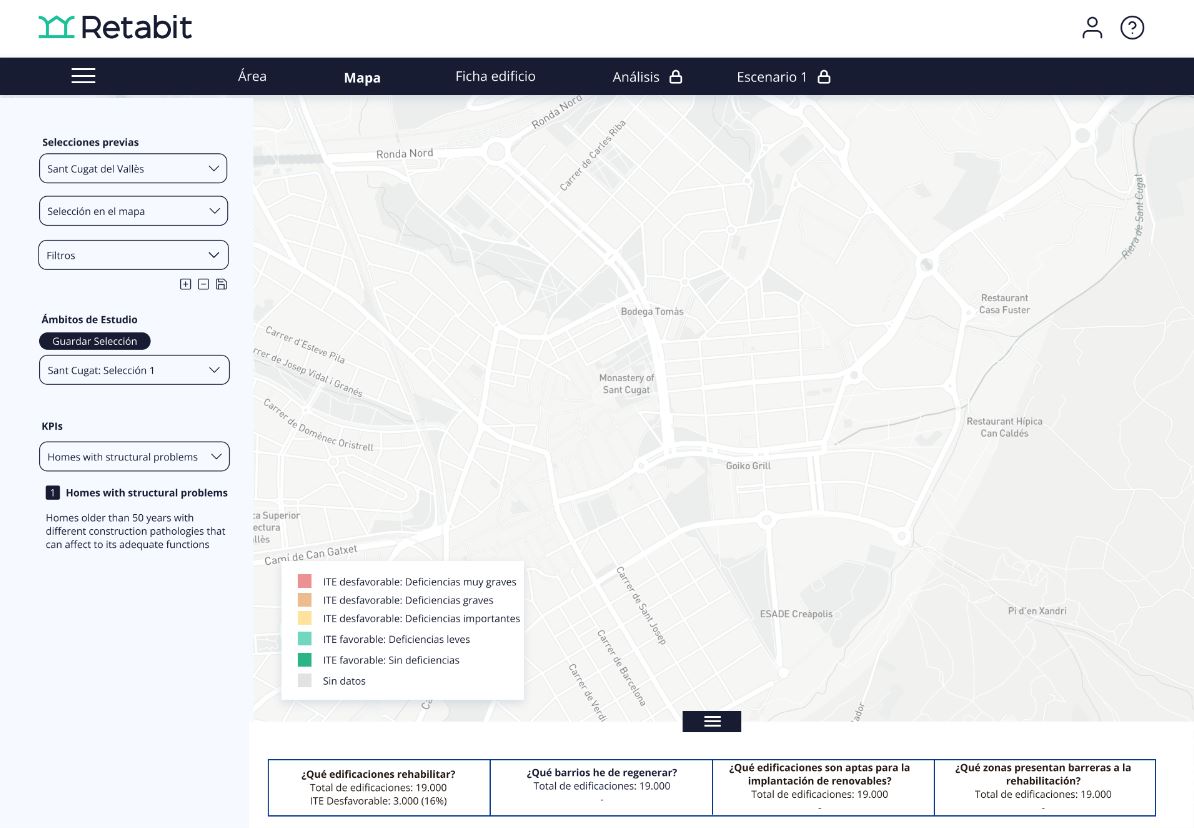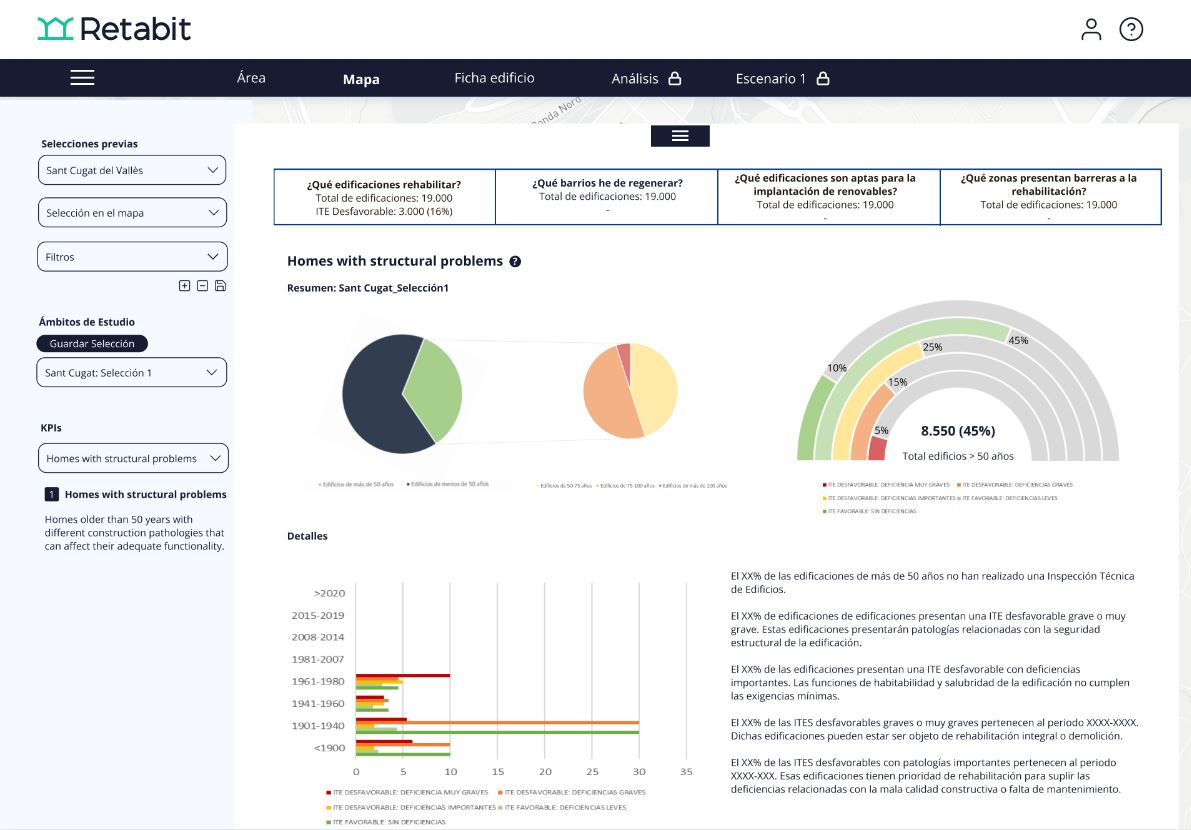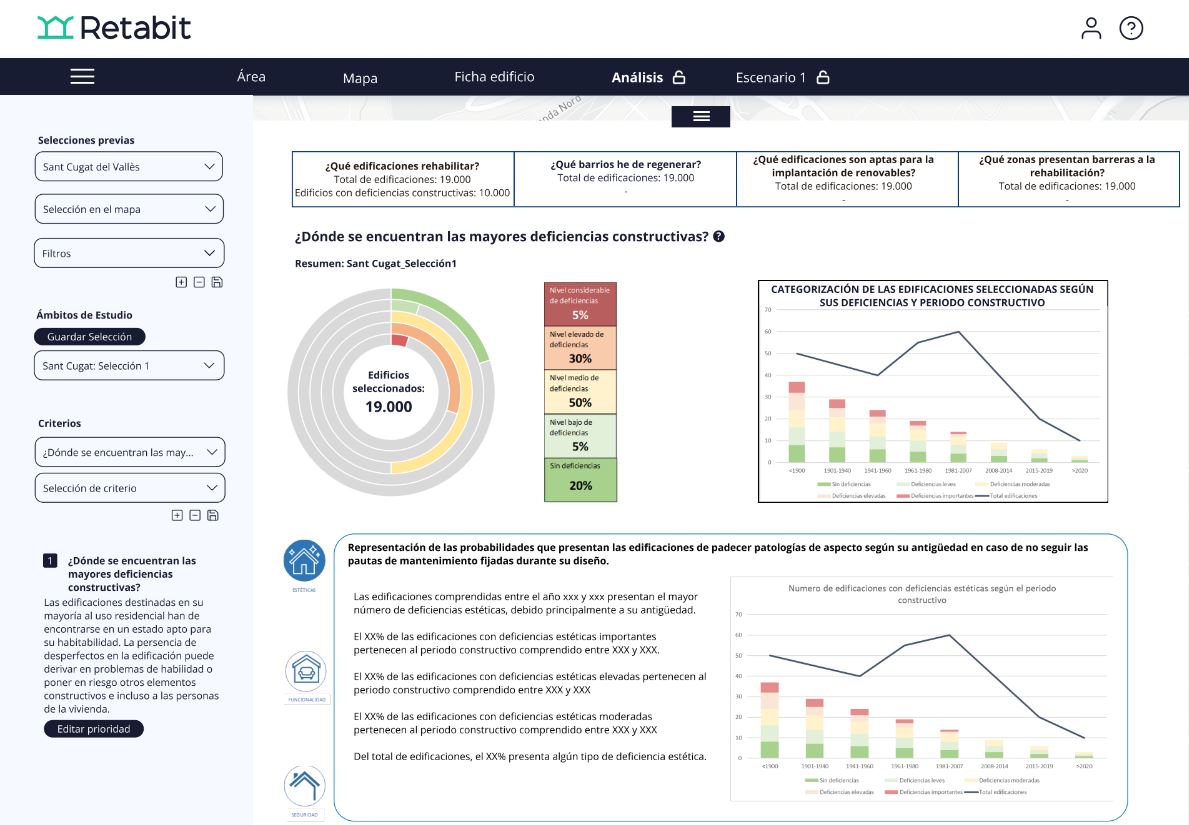
Political awareness is finally recognizing the significance of building renovation in Mediterranean areas as climate change stretches energy vulnerable households. Nevertheless, without entitling the intermediate sections of decision making with usable information, the real necessities get lost in the data void.
Nowadays local data from energy consumption patterns, urban morphology, accessibility, economic distribution, among others, are easily generated but poorly organized and interpreted by their owners. There is an urgent need to deploy tools to link the different household multidimensional data, as well as to extract knowledge from them at a local level. Plus, being able to compare and visualize the impacts of applied measures is key to identifying the urgent causes and to achieve time & cost-effective decisions.
The RETABIT project emerges from this pressurized reality to try to relieve local authorities in regard to data management, situation reporting and actuation paths. Thus, the objective is to create a bottom up process data driven service platform, which facilitates the evaluation of urban areas and their potential to renovation through building retrofitting, for the park decarbonization. The platform can help the stakeholder to have a better understanding on identifying critical and vulnerable groups of buildings at a local level; besides it can allow for prioritization of the retrofitting actions linked to the renovation wave, considering different optimization criteria, from economics to human wellbeing.
RETABIT uses a grey box simulation engine that processes real data to calculate energetic, economic and social outputs for the actual building park situation, while it also predicts the future scenario after implementing a pack of retrofitting solutions. Furthermore, these outputs are designed to feed a series of KPIs in line with the Sustainable Energy Access and Climate Action Plans (SECAPs) and the Sustainable Development Goals (SDGs) framework. These would help platform users to monitor, interpret and gather valuable information for the city records.
Throughout the process, the RETABIT platform’s methods and tools will be applied in demonstration scenarios with the participation of the regional government, relevant stakeholders, and end-users from Barcelona municipalities. RETABIT, is an empowering renovation instrument, which La Salle (University and technology center) and the LOCALISED partner IREC (Catalan Research Center) have been elaborating since 2021. To this day, the project’s development is halfway through.
More information can be found in the following link: https://retabit.es



Recent Comments